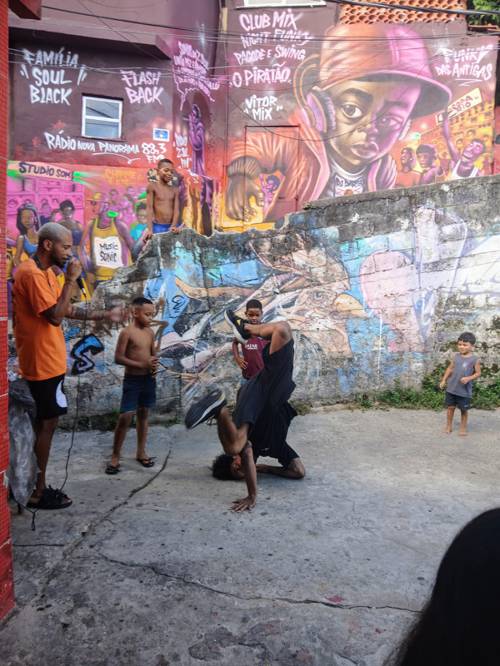
FAQ About Significance of Hip-Hop in Shaping Language and Vernacular

How has hip-hop influenced modern slang?
Hip-hop has played a critical role in shaping modern slang by popularizing terms and phrases that originate within the culture. Words like "dope," "lit," and "flex" have transcended their hip-hop origins and are now commonly used in everyday language across different demographic groups. Through music, social media, and mainstream media appearances, hip-hop artists continuously introduce novel linguistic expressions that quickly spread and evolve.

What are some common slang words that originated from hip-hop?
Many slang words that are popular today have roots in hip-hop culture. For example, "bling" refers to flashy jewelry, and "swag" denotes a stylish confidence. Other terms like "yo," "props," and "crib" have also been popularized by hip-hop artists and have become part of everyday vernacular.

How does hip-hop vernacular differ from standard English?
Hip-hop vernacular often includes creative wordplay, altered pronunciation, and unique grammatical structures. It incorporates slang, metaphors, and cultural references, creating a distinct linguistic style that reflects the experiences and environment of hip-hop artists. This vernacular is dynamic and evolves rapidly, often challenging traditional linguistic norms.

Why is hip-hop considered influential in language evolution?
Hip-hop is influential in language evolution because it serves as a platform for expressing new ideas and identities, often challenging societal norms. The genre’s widespread popularity means its linguistic style reaches diverse audiences, contributing to changes in how language is used and understood. It not only reflects the creators' experiences but also resonates with listeners worldwide, encouraging the adoption of new linguistic elements.

Can hip-hop's influence on language be seen globally?
Yes, hip-hop's influence on language is a global phenomenon. As hip-hop music and culture have spread worldwide, they have impacted local languages by introducing new words and expressions, and even inspiring localized adaptations of hip-hop vernacular. Countries such as Japan, France, and South Africa have vibrant hip-hop scenes, each reflecting and reshaping their unique linguistic contexts.

How do hip-hop artists create new slang?
Hip-hop artists often create new slang through lyrical innovation, storytelling, and cultural commentary. They draw from personal experiences, socio-political contexts, and street culture to craft terms that resonate with their audience. The transformation of everyday language into something fresh and relatable is a hallmark of hip-hop artistry.

What role does media play in spreading hip-hop vernacular?
Media plays a significant role in spreading hip-hop vernacular by showcasing hip-hop music and culture through television, radio, and online platforms. Music videos, interviews, and social media amplify the reach of hip-hop language, allowing it to penetrate mainstream culture. The depiction of hip-hop lifestyles in films and series further contributes to the dissemination and normalization of hip-hop vernacular.

Are there examples of hip-hop vernacular being studied academically?
Absolutely, hip-hop vernacular has been the subject of numerous academic studies. Researchers explore its linguistic properties, cultural significance, and impact on identity formation. Scholars analyze how hip-hop vernacular challenges standard language conventions and offers insight into cultural and social dynamics.

Does hip-hop vernacular change over time?
Yes, hip-hop vernacular is dynamic and changes over time as artists introduce new expressions and societal contexts shift. This evolution reflects changes in the cultural landscape, technological advancements, and generational differences, ensuring that hip-hop vernacular remains a living, adaptable form of language.

How has social media influenced hip-hop language?
Social media has accelerated the spread of hip-hop language by providing platforms for artists to share content widely and for fans to engage with it. Platforms like Twitter, Instagram, and TikTok facilitate the rapid dissemination and evolution of hip-hop slang and expressions, often leading to viral trends that transcend cultural boundaries.
